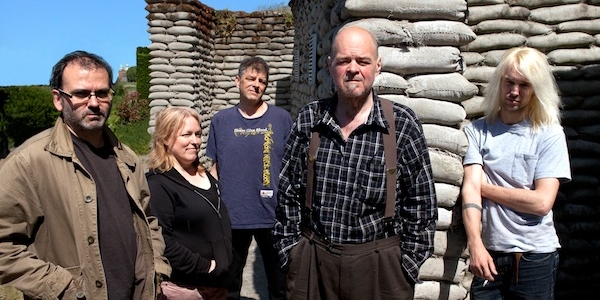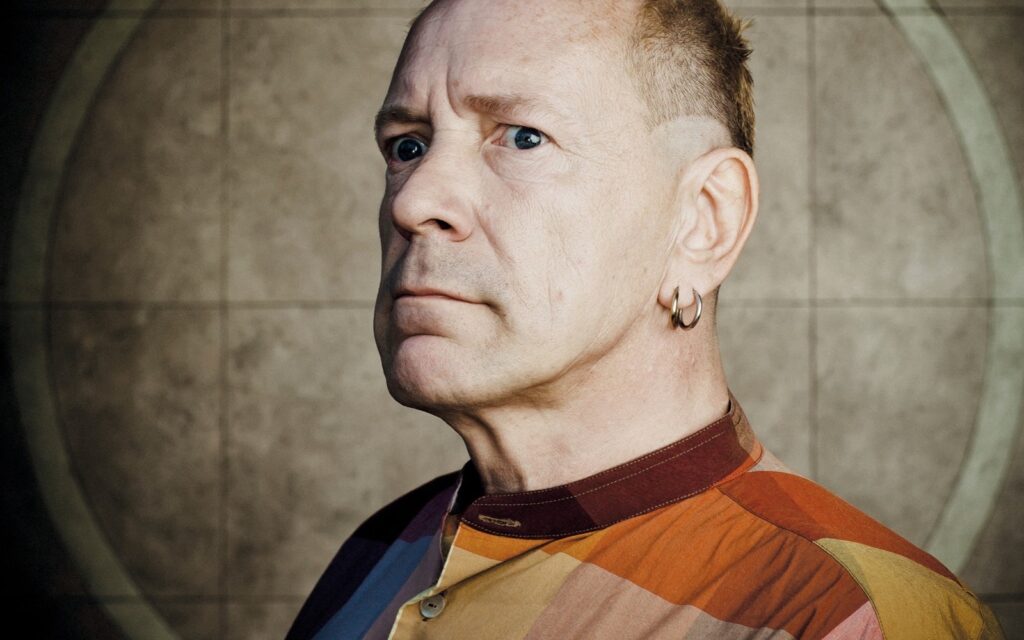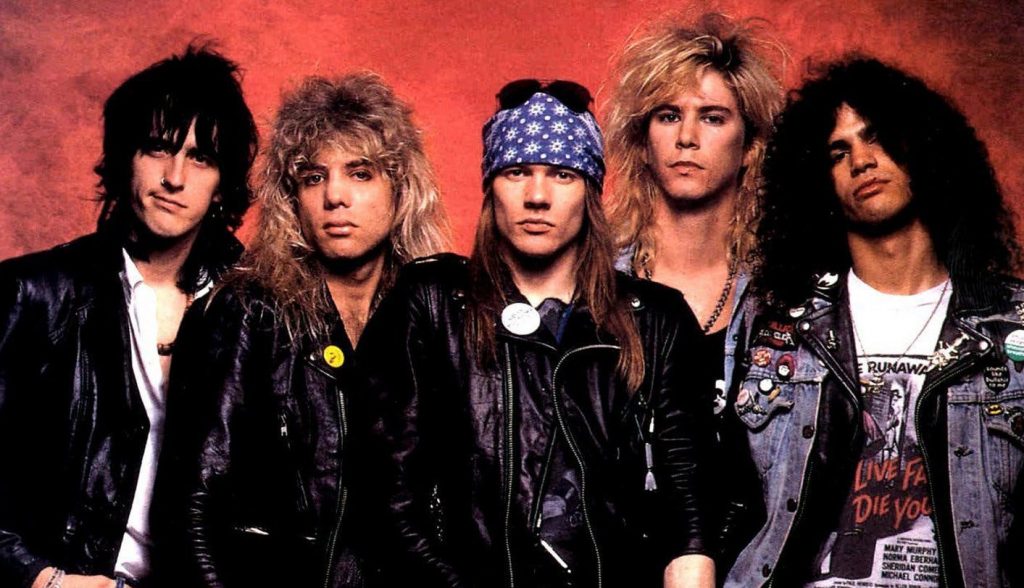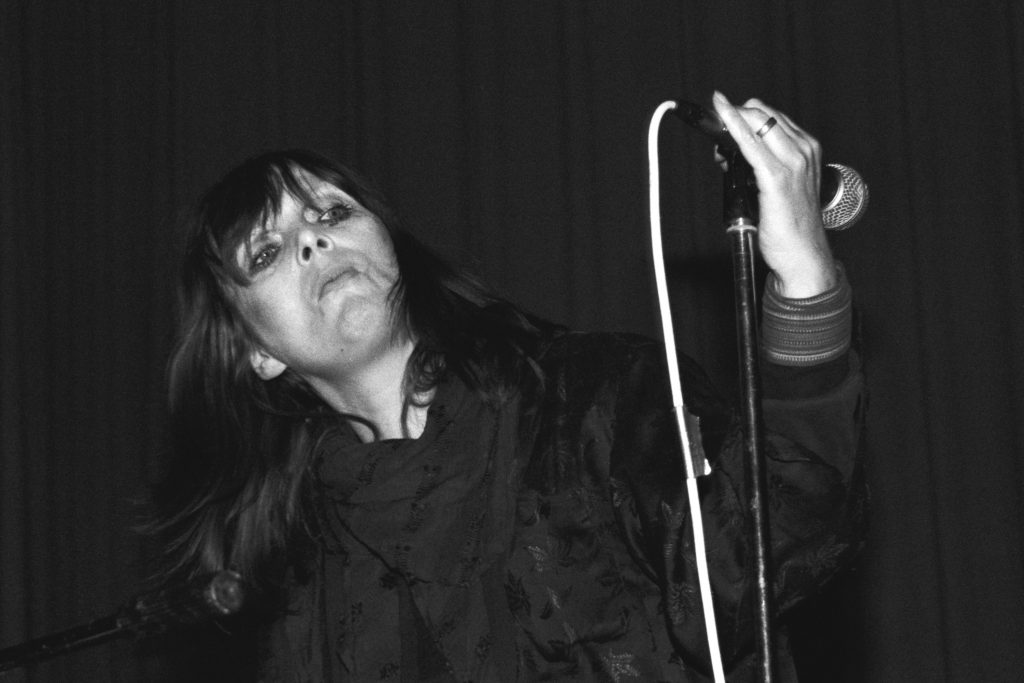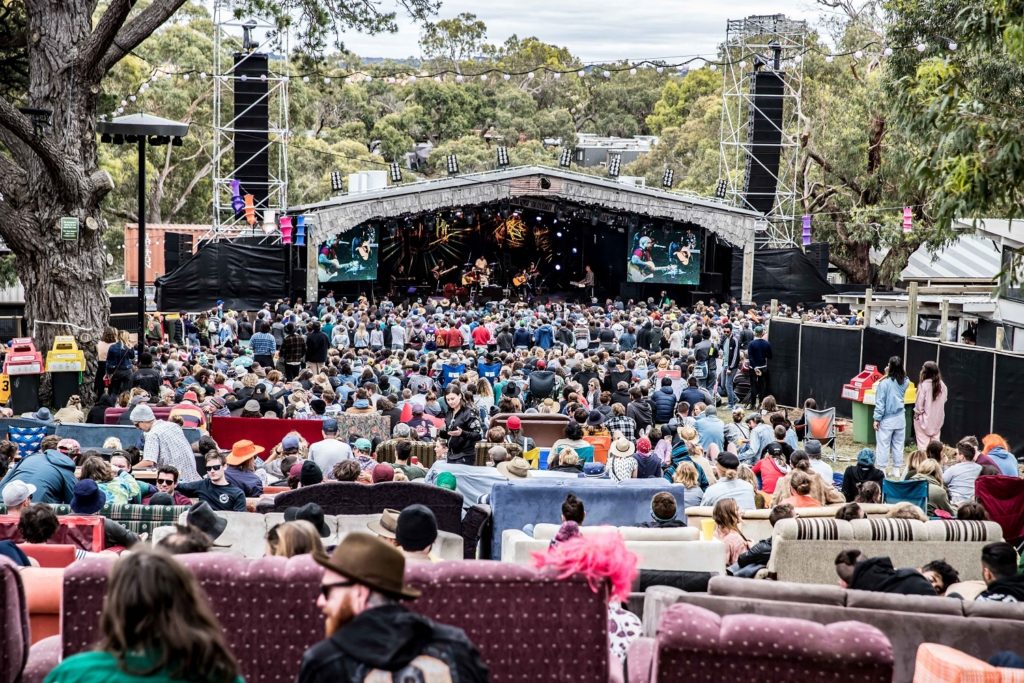“Probably in all of rock, only The Rolling Stones you could say are more stable. Thirty-five years is a pretty long time with relatively few changes. In ’93 there was a big shake-up: people quit, Allen retired to be a pilot, Scott didn’t want to play drums anymore and Tony went to play with They Might Be Giants. But since then it’s been pretty stable,” says Thomas.
Nevertheless, the singer contends that a fixed assemblage of people isn’t what chiefly constitutes a band. He stresses a band’s essence is in a guiding idea, which is negotiable with lineup fluidity. “The people in the band are irrelevant. The thing that’s important is the idea of the band, and you choose new people when it comes time to do that, which you hope is the right chemical reaction to maintain the idea of the band. Fans don’t like to hear the fact that the people in the band that they admire are totally replaceable.”
It’s valid to fear a band’s magic synergy will be besmirched if the specific group of people is disrupted, but Pere Ubu’s singular integrity hasn’t faltered despite the personnel fluctuations. Thomas’ driving force has been a constant, however he divulges that he is in fact in the process of finding a successor to reign over Pere Ubu. “I embarked on a new project about a year ago to replace myself. I’ve got to find somebody who, A, understands exactly what the band is, B, somebody who’s capable of being a singer in this band, and C, somebody who’s capable of writing songs that are cohesive with the idea of the band.”
The notion that a group can subsist beyond original members, without becoming a tribute act, seems novel within the rock music realm. Thomas is driven by marked artistic intentions and is determined to make his philosophies manifest. “I have ideas, I have theories, I have doctrines, I have philosophies that have been at the core of the band or have been inspired by the band for 40 years. I will achieve it. If anybody in the history of rock music can do this, we’re the ones.”
During their 40-year history Pere Ubu’s music has often been described using the ambiguous tags ‘experimental’ and ‘underground’, as well as the sardonic self-appraisal ‘avant-garage’, but it’s hard to pinpoint where they’re appropriately canonised. Thomas believes that at the time of their inception, rock music was evolving into a culturally extrapolating artform. “If you look back at the early ‘70s, when Pere Ubu begun, it was very clear that rock music was at an evolutionary leap into the realms of literature, to the realms of high art. You were integrating abstract sound to achieve many different things. In 1973/4-ish you had this next generational window coming through – you had us, The Residents, Television – who’d been trained in this stuff and were beginning to produce the goods.”
Thomas opines that, in contrast to distracting labels arbitrated by commercial standards, the progress of elucidating art is what demarcates the ‘mainstream’. “Pere Ubu is not experimental. We know what we’re doing. We’re not avant-garde, we’re the mainstream. People like Lady Gaga and Elton John, these people are weird and experimental. We’re just Lawrence Welk, the guy who had a big band and he’d be on Saturday night playing polkas and music for your mum and pop and grandad. That’s who we are.”
Thomas obviously has a fertile creative mind and in addition to presiding over Pere Ubu’s 14 studio albums (the latest, Lady Of Shanghai, came out last month), he has released a number of solo records. Yet he denies that he’s possessed by a vigorous urge to make music. “I’ve never had a need or urge to write music. I hate writing music. I hate singing. I resent the fact that I have to go out and get on a plane and go somewhere and sing.” He explains that mountainous ambition and corresponding discontent is what motivates him to continue making records: “Pere Ubu is not your standard pop band. There’s a great breadth and depth to it that continually throws up more interesting challenges. We’ve never repeated ourselves; well at least not for long. That was one of the original principles of the band. The other main principle in Pere Ubu is that failure is a man’s best friend. Everything I’ve done has been a failure. I don’t want to stop when I consider myself a failure. If I was being successful I’d have quit by now.”
BY AUGUSTUS WELBY
